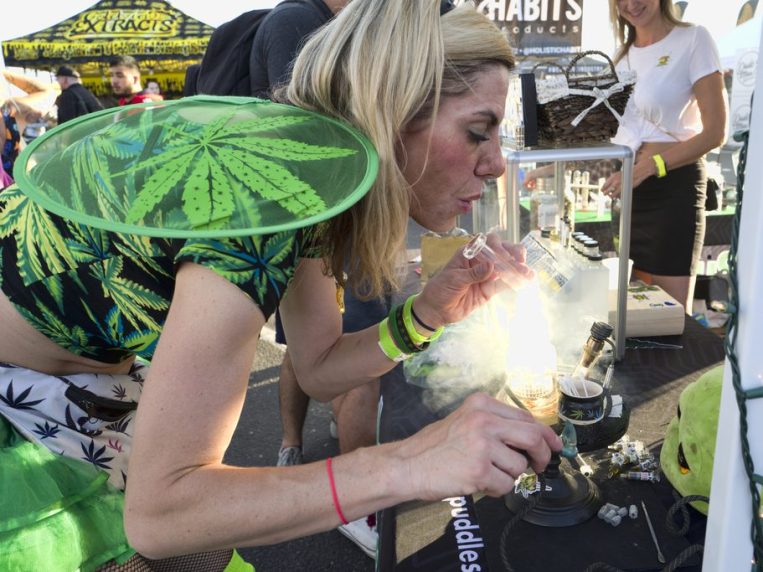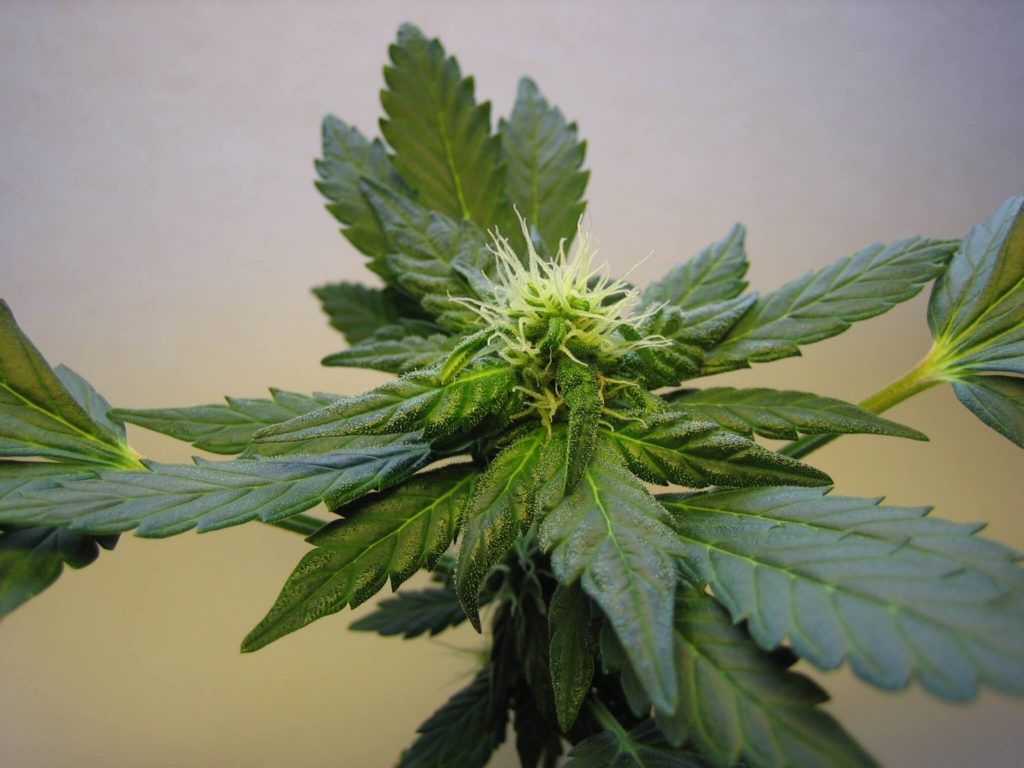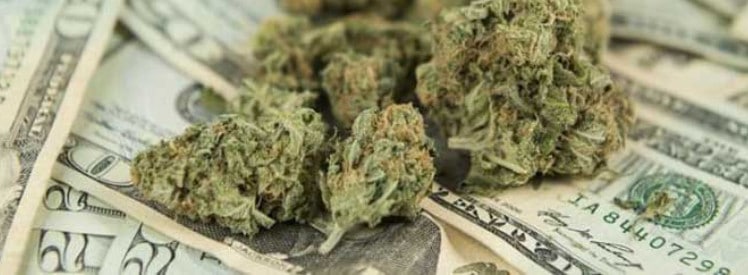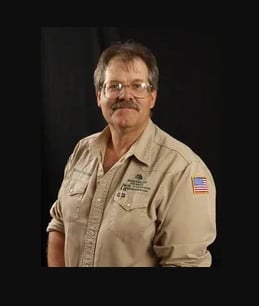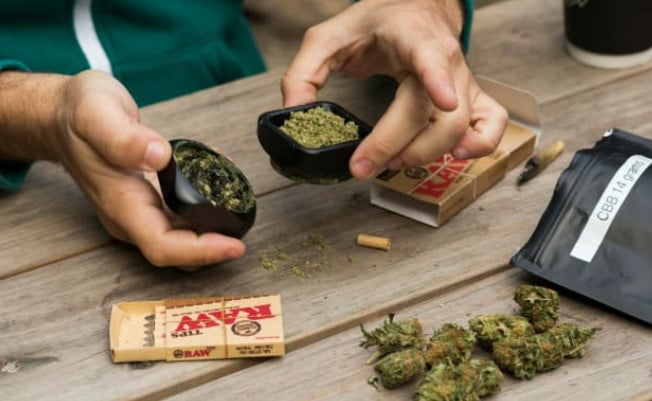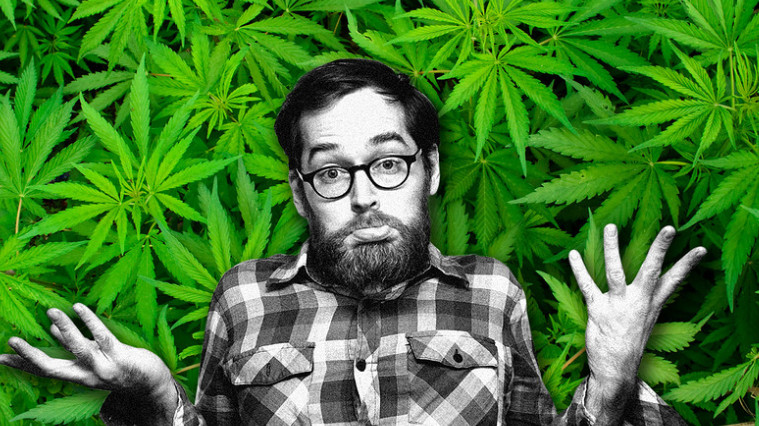Illinoisans antsy to fire up a legal joint just for fun should probably mellow out.
Marijuana emerged as a key issue in the governor’s race after J.B. Pritzker and fellow Democrats Chris Kennedy and Daniel Biss committed during the primary race to fully legalizing the drug. If elected, Pritzker will face the trying task of pushing his plan to legalize recreational pot use through the state Legislature.
Gov. Bruce Rauner remains opposed to recreational cannabis legalization, though he recently expanded the state’s medical marijuana program. Rauner said in an interview last year it would be a “mistake” to legalize the drug. He has called the process a “massive human experiment.”
With less than two weeks until Election Day, this much is clear: No matter who wins, full-on legalization is still a long way off.
Rauner signed a series of cannabis-related measures that received bipartisan support.
Pritzker’s plan will likely require more political wrangling and face stiffer opposition than those measures, which legalized industrial hemp and gave students and opioid patients access to medical pot.
Of the nine states that have legalized adults’ use of cannabis, only Vermont did so through legislation. Alaska, California, Colorado, Maine, Massachusetts, Nevada, Oregon and Washington all legalized the drug through ballot initiatives.
Pritzker, who holds a commanding lead over Rauner in recent polls, has only broadly defined his pot policy. His campaign has sidestepped questions about whether it will be an immediate priority if he wins.
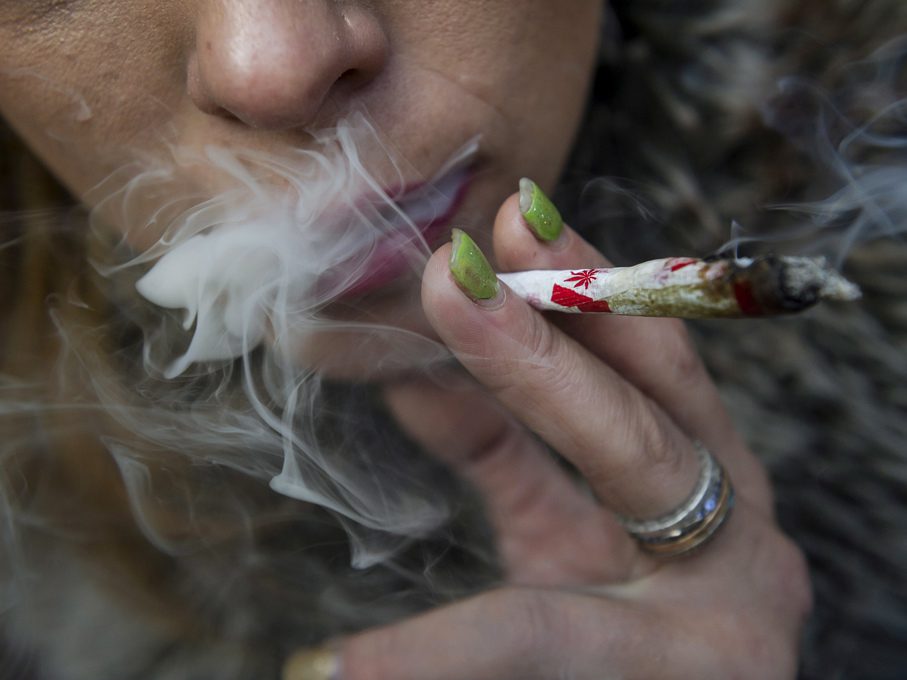
Credit: chicago.suntimes.com
Pritzker campaign spokesman Jason Rubin said Pritzker plans to establish a “strong regulatory system and framework” to license recreational weed businesses and to borrow policies from states that legalized marijuana.
Pritzker plans to make legalization a “central component” of his criminal justice reform and economic inclusion efforts, Rubin said. At a January news conference, the Democrat said he’d review and commute pot offenders’ prison sentences and include minority entrepreneurs in running cannabis cultivation and dispensary facilities.
But the key selling points of Pritzker’s pot plan are the hundreds of millions of dollars in annual revenue he says it could bring and the growing popularity of legal marijuana.
Over the past two years, separate polls conducted by the Paul Simon Public Policy Institute at Southern Illinois University Carbondale showed two-thirds of Illinois voters support cannabis legalization.
State Rep. Kelly Cassidy and state Sen. Heather Steans, both Chicago Democrats, introduced legislation in March to legalize recreational pot, but the bills failed.
“I think our biggest hurdle is that people evolve a lot more quickly than politicians,” Cassidy said.
Cassidy and Steans plan to file revamped bills in January.
Rubin wouldn’t say whether Pritzker would support those. Steans said she and Cassidy have discussed their plan with the Democrat, his campaign staff and members of Rauner’s administration and that Pritzker “overall indicated that he supports legalizing cannabis.”
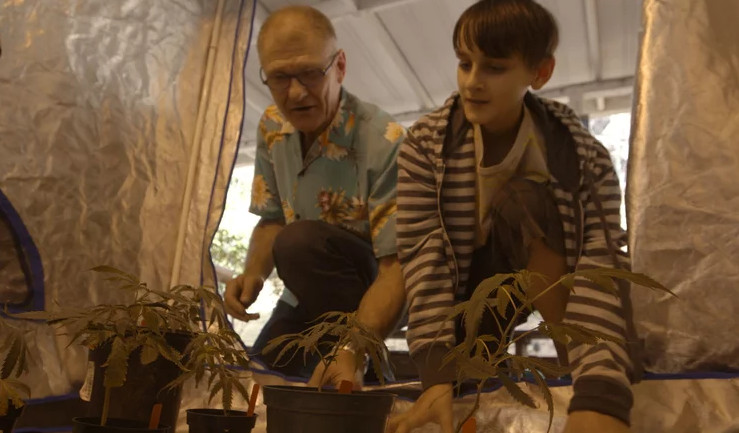
Credit: chicago.suntimes.com
Cassidy said the potential $700 million in revenue “is not going to solve all of our state’s fiscal problems.”
“I think more significant will be the savings we’ll see particularly at the local level from not jailing people for this product, from not having to police over this product,” she said.
Activists, law enforcement groups and faith-based community members are countering the calls for legalization. Smart Approaches to Marijuana — a Virginia nonprofit — recently launched its Healthy and Productive Illinois project to fight legalization efforts. Its coalition includes the Illinois Chiefs of Police Association, the Illinois Drug Enforcement Officers Association, the Midwest Truckers Association and the Illinois Association of Housing Authorities.
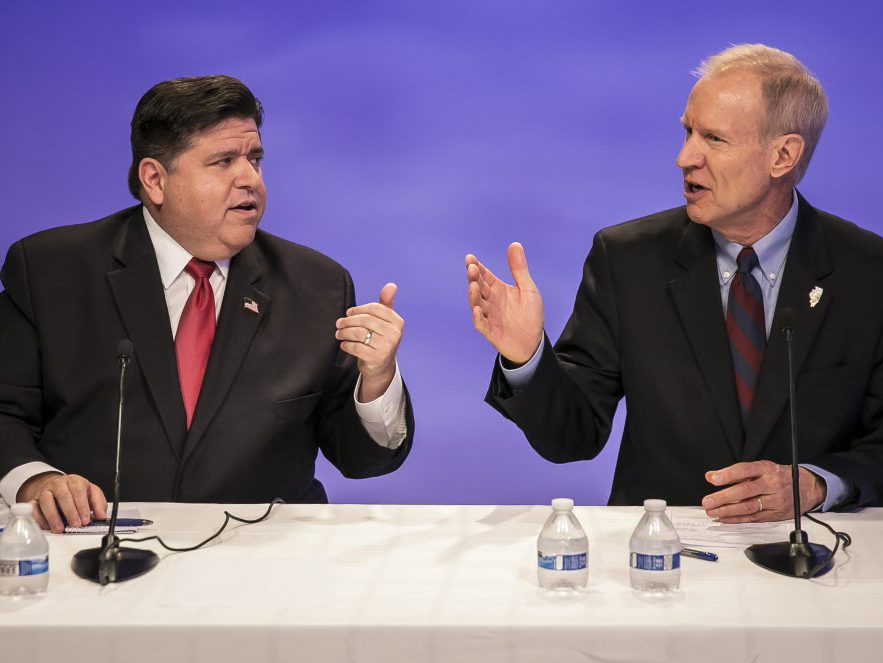
Credit: chicago.suntimes.com
We’re trying to raise more awareness about this issue,” said Kevin Sabet, Smart Approaches’ CEO, who co-founded the group with former Rhode Island Congressman Patrick J. Kennedy and was a drug policy adviser in three presidential administrations.
Sabet said he’s concerned that Pritzker’s second cousin, Joby Pritzker, is the board chairman of the Marijuana Policy Project, the largest organization in the country focused on changing weed laws. Joby Pritzker and his father, Nicholas J. Pritzker, have invested heavily in cannabis-related ventures PAX Labs and MJ Freeway.
Warning against legalization, Rauner pointed in an interview with Crain’s Chicago Business last month to “a lot of negative consequences. DUIs, absenteeism, THC in middle school kids, lack of productivity, expanded black markets and the tax revenue not being nearly as high as they thought from it.”
Sabet likens the situation in Illinois to the push for legalization in New Jersey. Pro-weed Gov. Phil Murphy, elected last year, “said one of his priorities was to legalize marijuana, and he thought it would be a walk in the park,” Sabet said. “The reality is, the Democratic Caucus is split and the Black Caucus is against this, they didn’t want this at all.
“I think we’re going to try to make it just as hard in Illinois.”
Credit: chicago.suntimes.com

